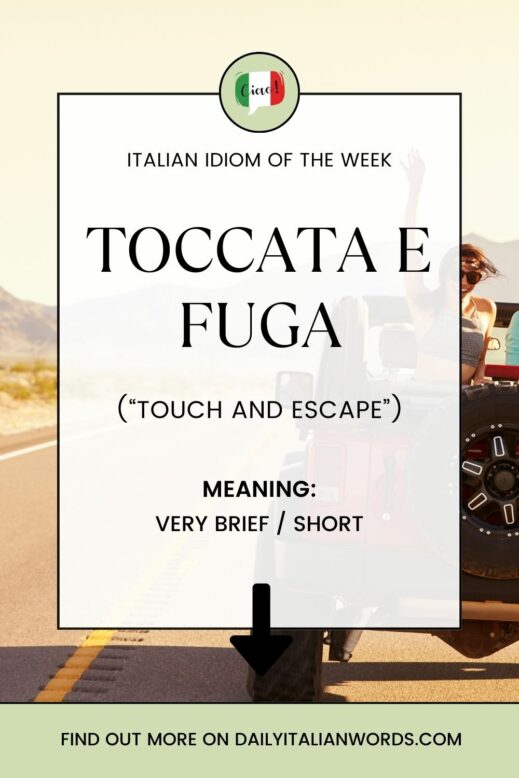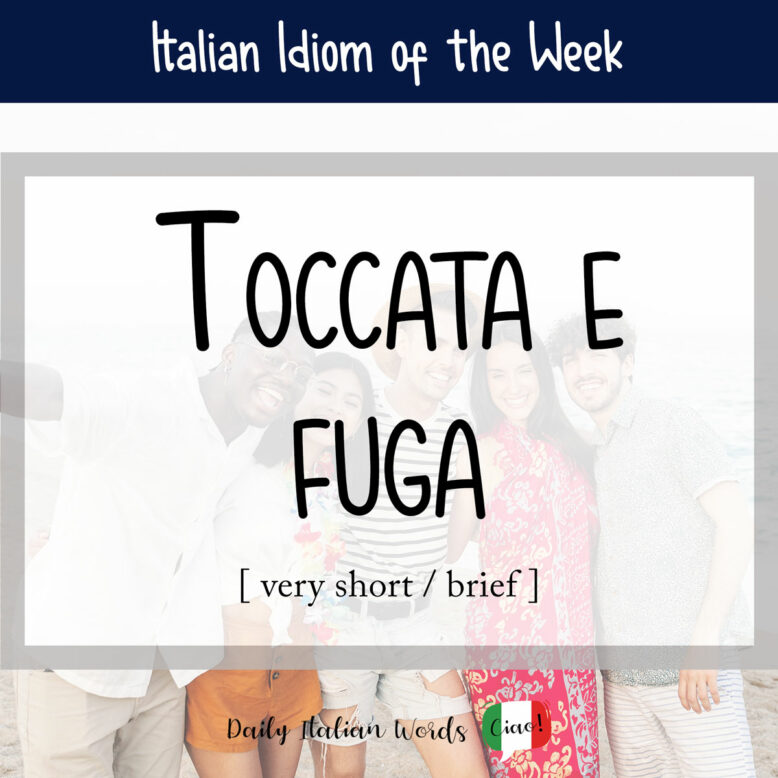Last weekend, we had some Italian friends over who, due to various reasons, could only stay from Friday to Monday, with two of those days dedicated to travel. In total, they had just two full days to spend with us and explore our little corner of Wales.
In Italian, there’s a common idiomatic expression to describe this kind of brief visit or holiday: toccata e fuga.

Toccata is derived from the verb toccare (to touch), while fuga (escape) comes from the Latin “fuga” of the same meaning, which in turn derives from the Latin verbs “fugere” (to flee) or “fugare” (to chase). In essence, if you go on a “toccata e fuga” vacation, you briefly “touch” the place you’re visiting, then swiftly “escape” back to your everyday life.
This expression is often translated as day trip, if you only stay for one day, of course. You may also hear the translation whistle-stop tour if the person in question visits many places in a short period of time.
È stata una vacanza toccata e fuga, ma un giorno ci piacerebbe tornare e girare un po’ di più.
It was a very short holiday, but we’d like to come back one day and explore a bit more.
While commonly used to describe brief vacations, toccata e fuga can also be applied to other situations, such as short-lived relationships.
Non mi interessa una relazione toccata e fuga. Cerco qualcosa di serio.
I’m not interested in short-term relationship. I’m looking for something serious.
The expression toccata e fuga also exists within the realm of classic music. According to Britannica, the toccata represents a musical form for keyboard instruments designed to showcase the virtuosity of the performer’s touch, while the fuga (known as fugue in English) is a technique characterised by the overlapping repetition of a principal theme in different melodic lines and follows the toccata. The most famous example of this kind of musical composition is undoubtably Johann Sebastian Bach’s Toccata and Fugue in D Minor.
A very similar expression is mordi e fuggi, with mordi deriving from mordere (to bite) and fuggi from fuggire (to escape).
È un’agenzia di viaggi che organizza vacanze mordi e fuggi.
It’s a travel agency that organises short getaways.

Heather Broster is a graduate with honours in linguistics from the University of Western Ontario. She is an aspiring polyglot, proficient in English and Italian, as well as Japanese, Welsh, and French to varying degrees of fluency. Originally from Toronto, Heather has resided in various countries, notably Italy for a period of six years. Her primary focus lies in the fields of language acquisition, education, and bilingual instruction.


